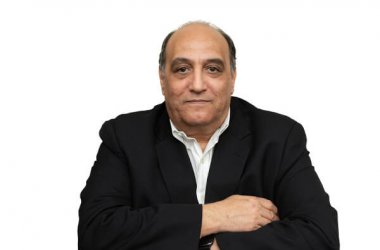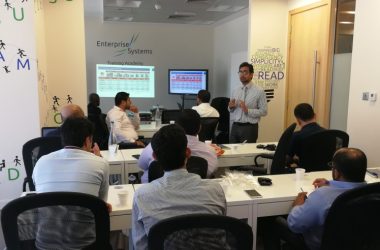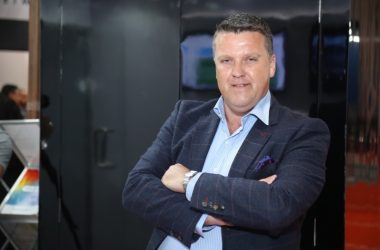
While leading research firms, industry pundits, leading economists and business leaders around the globe have declared an end to the recession no one is talking quick upswing. Having weathered the storm is a difficult 2009, regional SI Al-Futtaim Technologies is upbeat that the growth prospects being touted in the Middle East will boost its own quest to grow its technology portfolio and regional coverage.
Venkat Raghavan, GM at Al-Futtaim Technologies, says the company has continued to witness streaks of positive sentiment returning this year in comparison to 2009 when companies were hoarding cash and IT purchase decisions were frozen. This year, says Raghavan, Al-Futtaim
Raghavan says despite a well recognised slowdown in 2009, Al-Futtaim
Raghavan says early into the recession, the company looked to build on internal strengths and sought to leverage synergies among Al-Futtaim group companies. For instance says Raghavan Al-Futtaim Technologies worked hand-in-hand with its sister company, Al-Futtaim Engineering, to land a major multi-million dirham infrastructure project in Fujairah. “We reorganised our operating structure to adapt to the market’s deteriorating conditions and showed customer’s significant cost savings by employing a one-stop solutions provider,” he says. “We won some major projects at the end of 2009/start of 2010 in hospitality, telecom and infrastructure.
Regional focus
Raghavan points out that prior to 2009, companies invested in IT infrastructure as large budgets provided for IT support teams and upgrades. But today, says Raghavan, IT managers are being trained in financial accounting to understand the long-term ramifications of any investments, be it capital expenditure (CAPEX) or operating expenditure (OPEX).
Raghavan says solution providers have to similarly adapt to these changes and move from looking at a customer as a one-time CAPEX transaction to a long term service-based relationship.
He adds that given the current market dynamics, Al-Futtaim Technologies has decided on a dual-pronged approach going forward. “The primary focuses on growing our business organically in our existing geographies of UAE and Qatar,” outlines. “The secondary focal point is to prepare for portfolio and regional expansion.
He explains that based on the organisational changes of 2009, Al-Futtaim is now able to aggressively pursue new projects and develop cross-sell opportunities among its existing customers. “By the end of the year, we hope to identify solutions that will complement our existing core offerings in our stable,” he says.
Tech/business trends
Raghavan says the company’s business model, as a channel to market and intermediary between vendors and end-user customers gives us the unique perspective of the pulse of the market. “I see the following business trends unified communications, managed services, green IT and video conferencing as trends that will have an impact on how organisations do business,” he says. “We have seen customers adopting unified communication systems as a means of improving staff efficiency and reducing long-distance telecommunication costs. UC adoption is further supported by the wide-spread adoption of smart phones with features to match those of existing desktops and notebook computers.”
Raghavan remarks that while vendors and the media have been tooting the cloud computing and virtualisation horn, it is Managed Services (Infrastructure-as-a-Service) that will take off long before the other two. He adds that companies were hesitant in pre-2009, but now, lean IT and OPEX models are the way forward. “We expect to see a large trend in solutions that help conserve the environment by reduced energy usage,” he says. “Home energy meters can help residents measure electricity consumed by individual devices and therefore helping to better manage the devices.”
Raghavan believes the video conferencing solutions are a long-term incentive to cut travel costs and therefore the adoption of these solutions is growing.
KSA market
With the KSA IT market has been praised as the one market this year that will spur IT growth prospects for the Middle East IT industry, Raghavan says Saudi Arabia’s resilience and ability to withstand the recent global economic upheavals make the Kingdom’s IT market a juggernaut that no player can afford to sidestep. He adds that third party market research indicates that the KSA IT market will represent close to 50% of the GCC’s total IT spend by 2013. “Considering these changing market dynamics, we are keeping a close tab on the KSA market and including it in our future expansion plans,” he says. “We will focus our energies in order to meet the 2010 budget targets for our operations in UAE and Qatar. At the same time we are formulating our growth strategies for 2011.
Growth outlook
Raghavan says the company will continue to grow organically based its core strengths of ICT and ELV convergence. He goes on to explain that the new growth areas for Al-Futtaim
Raghavan says Al-Futtaim
Raghavan says last year brought the days of hyper-growth in the UAE to an abrupt end. “While there existed a high propensity to in-source IT services, many organisations in the UAE are becoming more open to outsourcing non-core aspects of their IT infrastructure to an experienced provider through a managed services business mode,” he notes. “An example of this is for organisations to outsource network and desktop outsourcing services (NDOS) to a third party provider. With IT budgets under pressure, funds are focused on operations management rather than new initiatives.”
However, says Raghavan, it must be noted that the UAE’s managed services market is still relatively immature and fragmented, and no single provider can probably offer the entire range of managed services. “IT services providers able to simplify processes and deliver a complete set of high-quality services while remaining profitable will gain from the increasing appetite for third-party services in the UAE,” he says. “To secure new business, systems integrators and solutions providers will have to sell to IT heads as well as financial decision makers because the discussions will focus less on bandwidth and number of ports and more on net expense and common sense.”
Looking ahead, Raghavan says now that money is slowly trickling to IT departments, most end-user customers, CIOs and IT managers, are confronted with prioritisation issues. That is, which projects should receive funding and resource allocation – should IT teams focus on previously frozen projects or concentrate on new initiatives, Raghavan says.
Aside from the prioritisation of IT projects, Raghavan adds skills retention remain a challenge for many companies in the Middle East region. He points out that that recently, YouGovSiraj, an independent research company, ranked the Al-Futtaim group as Dubai’s best family run conglomerate based on points such as professionalism, brand value and business values among others. “I would add to the above findings by highlighting Al-Futtaim
Regional system integrator (SI) Al-Futtaim Technologies is preparing to grow its business organically in the UAE and Qatar. The move will also help the SI to execute its portfolio and regional expansion plans





